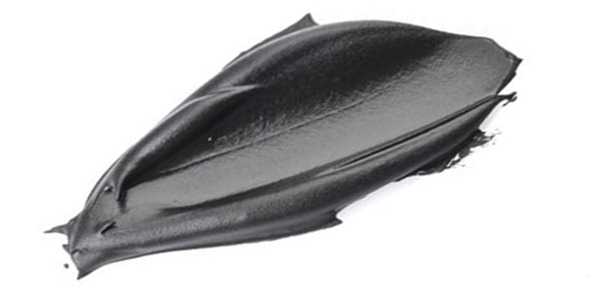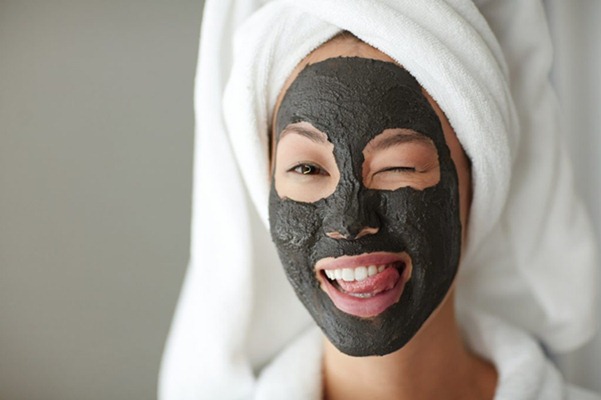A charcoal mask, touted for its ability to improve skin clarity and eliminate impurities, has gained widespread popularity as a potential solution for the persistent issue of blackheads. Marketed as a deep-cleansing agent, this mask claims to draw out excess oil, dirt, and dead skin cells from pores, subsequently leaving the skin looking clearer and feeling refreshed.
Some individuals believe that the activated charcoal in the mask acts like a magnet, adhering to impurities and, upon removal, revealing a smoother complexion. However, while some people report positive outcomes, it’s important to examine both the potential drawbacks and effectiveness of charcoal masks in the context of blackhead removal.
Does Charcoal Mask Remove Blackheads?
Yes, charcoal masks are often claimed to help remove blackheads, but their effectiveness can vary from person to person.
Charcoal masks typically contain activated charcoal. Activated charcoal is a form of carbon that has been treated to make it extremely porous.
The idea behind using charcoal masks for blackhead removal is that the activated charcoal can attract and absorb debris, excess oil, and impurities from the skin’s surface, including blackheads.
When you apply a this to your face, it dries and adheres to your skin. As you peel it off, it is supposed to pull out oil, dirt, and potentially some blackheads from your pores. However, in removing blackheads, the effectiveness of charcoal masks can vary from person to person.
It’s essential to note that while some people may experience positive results, others might not see dramatic improvement. In addition to this, the process of peeling off a mask can be harsh on the skin, potentially causing redness or irritation. Using charcoal masks improperly or overusing them could lead to skin issues.
If you’re looking for ways to get rid of or manage blackheads, it’s a good idea to incorporate a consistent skincare routine that includes the use of non-comedogenic products, exfoliation, and gentle cleansing.
If you have stubborn or recurring blackheads, it might be beneficial to consult a dermatologist for treatment recommendations and personalized advice.
How to Use Charcoal Mask to Remove Blackheads

When using charcoal products to target blackheads, consider these application methods and techniques:
- Cleanse: Start with a gentle cleanser to remove makeup or surface dirt, allowing the charcoal product to work effectively.
- Steam or Warm Compress: Before applying the charcoal product, use steam or a warm cloth or to open up pores. This can help the charcoal penetrate more effectively.
- Apply Thin Layer: Apply the product in a thin, even layer to the areas with blackheads. Don’t apply sensitive areas, such as around the eyes.
- Follow Instructions: Always follow the product’s instructions for application time. Leaving it on for too long can lead to irritation or dryness.
- Peel Gently: If it’s a charcoal peel-off mask, gently peel it off in an upward motion once it’s completely dry. Avoid pulling too hard to prevent skin damage.
- Rinse Thoroughly: If it’s a rinse-off mask, make sure to rinse your face with water to remove all traces of the product.
- Moisturize: After using a charcoal product, apply a non-comedogenic and hydrating moisturizer to maintain the skin’s balance.
- Frequency: Use charcoal products no more than 1-2 times a week to avoid potential irritation.
- Be Patient: Results may not be immediate, and consistent use over time might be necessary to see some improvement.
Don’t forget to perform a patch test on a small area of your skin to check for any allergies or adverse reactions.
Remember that individual responses can vary, and if you experience any discomfort, redness, or irritation, discontinue use and consult a dermatologist. It’s also important to incorporate a comprehensive skincare routine that includes exfoliation, moisturizing and proper cleansing to effectively maintain healthy skin and manage blackheads.
DIY charcoal-based remedies that you can use to naturally treat blackheads

1. Charcoal and Yogurt Mask
- Combine 1 tablespoon of plain yogurt with 1 teaspoon of activated charcoal powder.
- Apply the mixture to your face and leave it on for about fifteen minutes.
- Rinse off with water and pat your face dry.
2. Charcoal and Honey Mask
- Mix 1 teaspoon of raw honey with 1 teaspoon of activated charcoal powder.
- Apply the mixture to your face and let it sit for fifteen to twenty minutes.
- Gently rinse off with lukewarm water.
3. Charcoal and Oatmeal Scrub
- Mix 1 tablespoon of finely ground oatmeal with 1 teaspoon of activated charcoal powder and a little water to form a paste.
- Gently massage the mixture onto your face in circular motions.
- Rinse off with water and apply a moisturizer.
4. Charcoal and Aloe Vera Gel Mask
- Mix 1 teaspoon of aloe vera gel with 1 teaspoon of activated charcoal powder.
- Apply the mixture to your face and let it dry for fifteen to twenty minutes.
- Wash off with water and moisturize.
5. Charcoal and Green Tea Mask
- Brew a cup of green tea and let it cool.
- Mix a small amount of the cooled green tea with 1 teaspoon of activated charcoal powder to form a paste.
- Apply the paste to your face and leave it on for fifteen to twenty minutes.
- Wash off with water.
Especially if you have sensitive skin, remember to conduct a patch test before applying any DIY remedy to your entire face. While these DIY remedies can offer some benefits, they might not work for everyone, and results may vary. If you have stubborn blackhead issues, it can be a good idea to consult a professional or dermatologist for treatment options and advice.
FAQs
Can charcoal masks really help to eliminate blackheads?
Charcoal masks can help to temporarily remove some surface impurities, dirt and oil, including some blackheads. However, their effectiveness in completely eliminating blackheads may not provide long-lasting results and varies among individuals. It’s better to use them as part of a broader skincare routine and consult a dermatologist for personalized and more effective solutions.
What is the science behind charcoal’s ability to extract blackheads from the skin?
Scientific evidence regarding its effectiveness in significantly and consistently removing blackheads is limited and mixed.
Are there any potential risks or side effects of using charcoal products to treat blackheads?
Yes, using charcoal products for blackheads can lead to allergic reactions, overexfoliation, dryness, skin irritation, redness, and temporary results. Deeper blackheads might not be effectively removed and their efficacy varies. Lack of regulation, and false claims pose additional risks and not suitable for all skin types.
How frequently should I use charcoal-based products to see a reduction in blackheads?
The frequency of using charcoal-based products for blackheads depends on the specific product, your skin type, and your skin’s reaction. Usually, it’s recommended to use such products no more than 1-2 times a week to avoid irritation and overexfoliation. Consistency is key, but using them too often can lead to negative effects.
Does the type of charcoal (activated, bamboo, etc.) impact its effectiveness against blackheads?
The type of charcoal used in skincare products can affect its effectiveness to some extent. Activated charcoal is the most effective and commonly used type in skincare due to its porosity and high surface area, which allows it to adsorb impurities. Bamboo charcoal is a specific type of activated charcoal. Its derived from bamboo plants. While both can potentially help with blackheads by adsorbing debris and oil, the overall effectiveness depends on factors like concentration, the product’s formulation, and how well it adheres to the skin. It’s also very important to note that the type of charcoal is just one aspect of a product’s formula, and other components play a role in its efficacy as well.
What’s the difference between physical charcoal scrubs and charcoal-based chemical exfoliants for blackheads?
Physical charcoal scrubs use abrasive particles to physically exfoliate the skin’s and can be harsh if overused. Charcoal-based chemical exfoliants contain active ingredients like beta hydroxy acids (BHAs) or alpha hydroxy acids (AHAs) to dissolve dead skin cells and unclog pores.Chemical exfoliants penetrate deeper for more effective blackhead removal and are generally gentler.
Can charcoal masks effectively extract deeply embedded blackheads?
Charcoal masks are unlikely to extract deeply embedded blackheads due to their limited ability to penetrate deep into the skin.
How does the use of charcoal products compare to other methods of blackhead extraction, like professional facials or tools?
Charcoal products can provide temporary surface-level benefits, but professional tools and facials like comedone extractors offer more effective and precise blackhead extraction. Professionals can provide a tailored approach and safely remove stubborn blackheads, minimizing risks of damage or irritation.
In conclusion
Charcoal masks could contribute to the reduction of some blackheads. However, their effectiveness in completely removing deeply embedded blackheads is limited due to their surface-level action. While they might provide temporary improvement, they might not provide a long-term solution for stubborn blackheads. It’s essential to approach charcoal masks with realistic expectations and to use them as part of a broader skincare routine. Professional treatments like tools or facials used by dermatologists might be more effective for targeted blackhead extraction.


